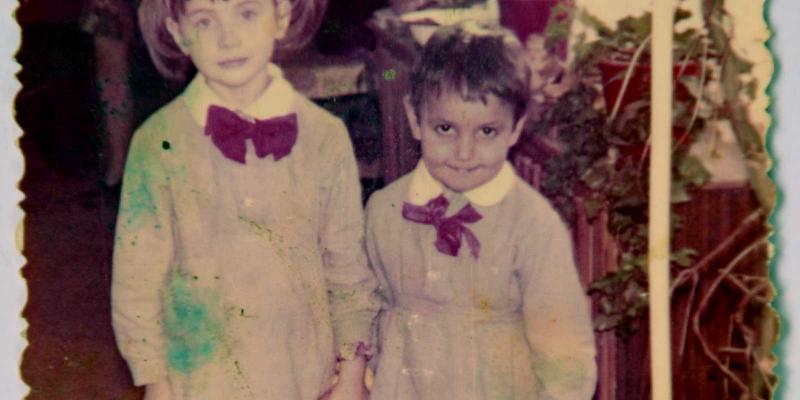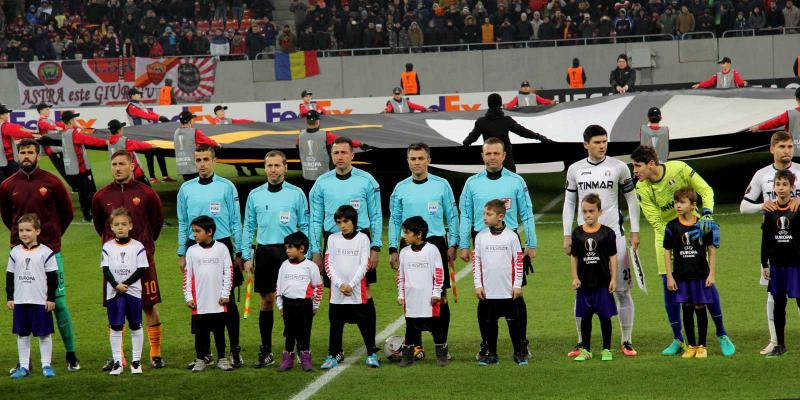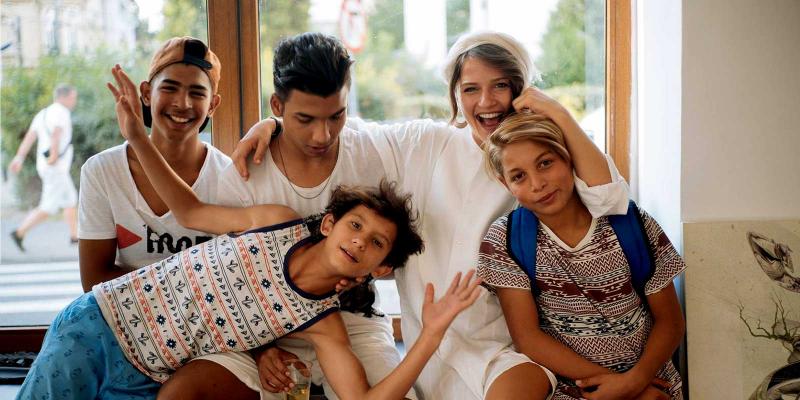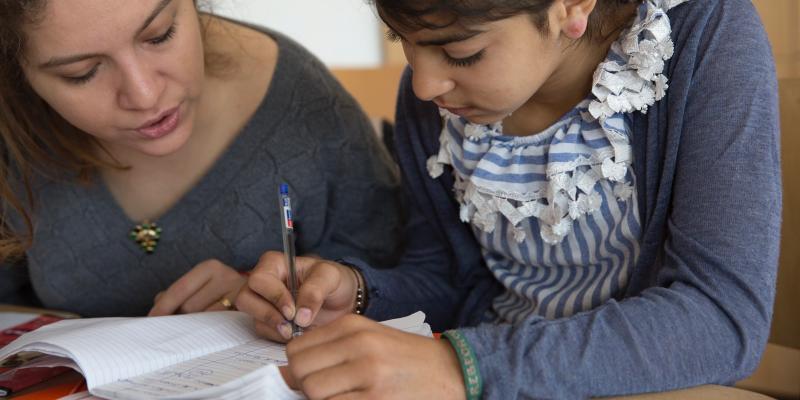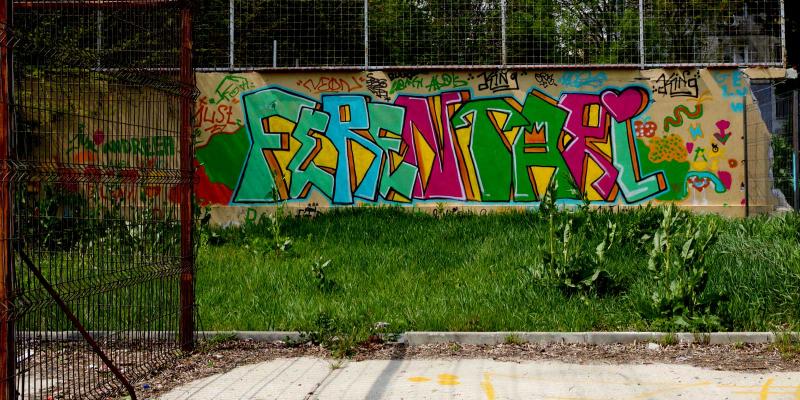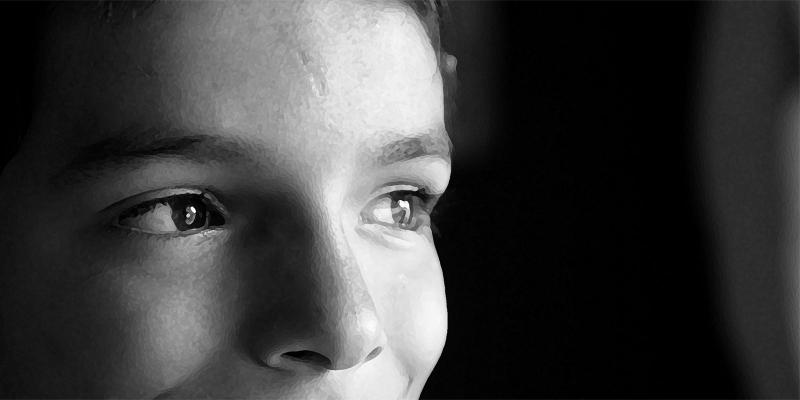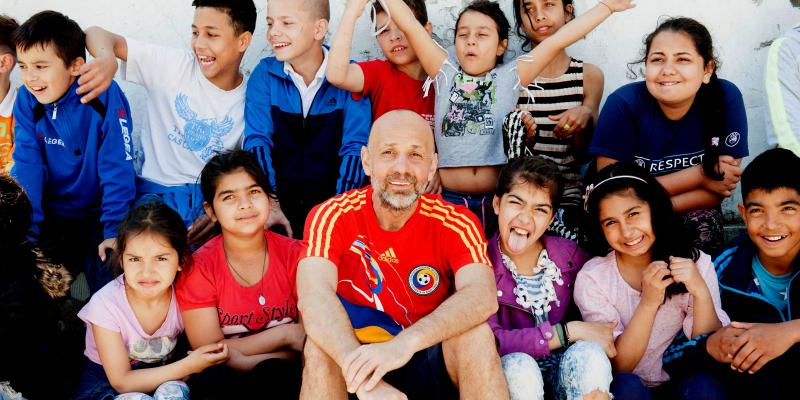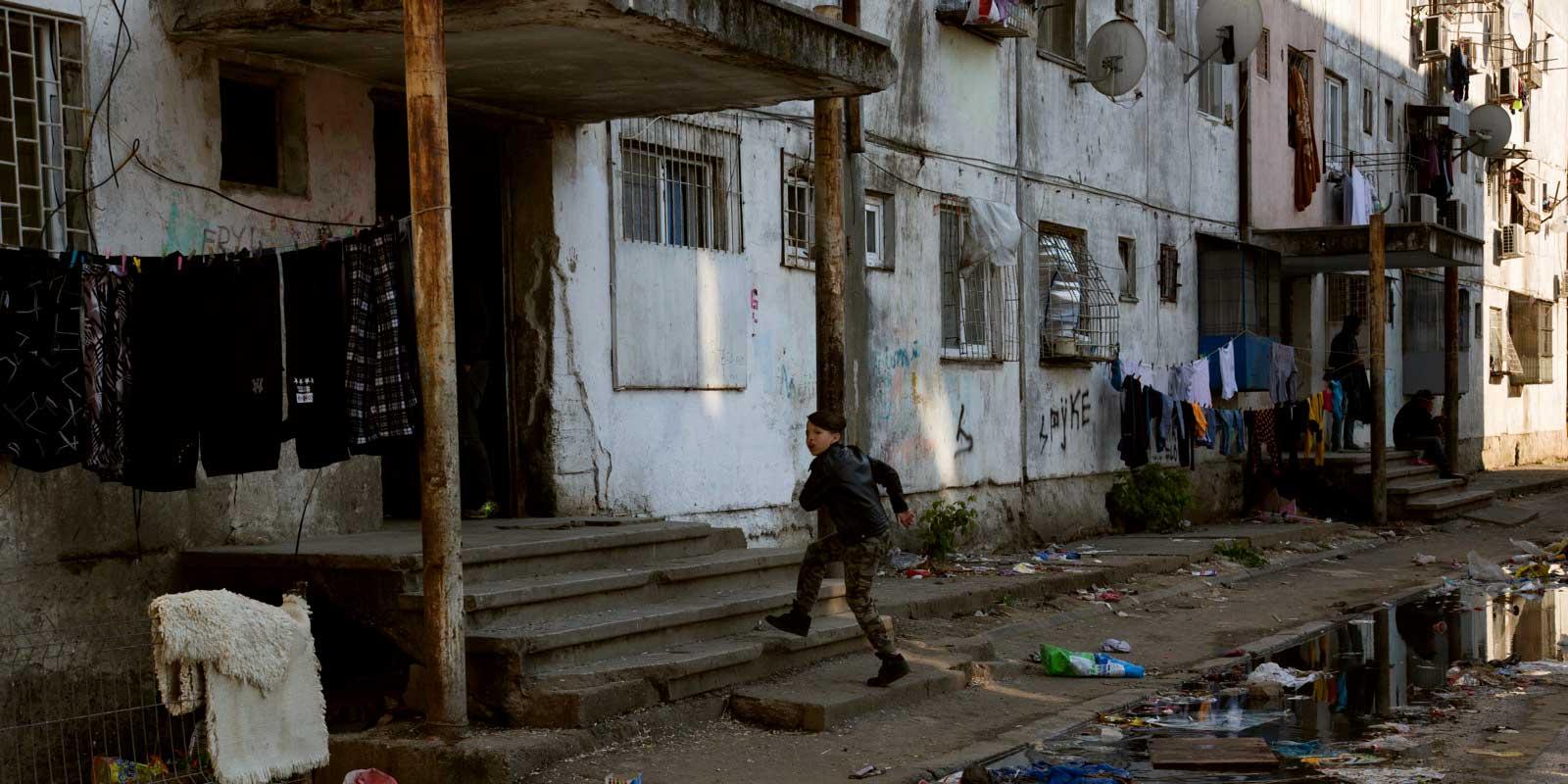
Toto, 10, skilfully picks his way between the piles of rubbish on the street and jumps over puddles and broken bottles. He gives the grey, starved-looking people standing and sitting on the street a wide berth. They look a bit like ghosts, and many often call Toto’s street ‘alley of the dead’.
Toto knows that when adults drink and take drugs, they can get angry and afraid over nothing. It’s best to keep your distance. His stairwell is dark because all the bulbs are broken. Water drips from the roof. The walls are covered in graffiti, and in the corners there are used needles discarded by drug users. There are no handrails to hold onto. Someone has unscrewed them long ago and sold them for scrap.
Cleaning for mum
When Toto opens the door to his flat, his two sisters are cleaning. Andrea, 13, is wiping a table and Ana, 16, is scrubbing stains on the wall.
“When mum returns, she should find the house cleaned so that we can start again from scratch,” says Andrea, rubbing harder.
“When’s mum coming back, Andrea?” asks Toto.
“None of your business,” says Andrea. She sounds angry, but really she’s sad. Mum has been in prison for over four years and she has three more years to serve. She’s asked to be released early and is waiting to hear from the prison authority.
“I’m hungry,” complains Toto.
“I’ll make soup”, says Ana and explains that she can’t at the moment because she doesn’t have a hotplate.
Makes a hotplate
After a while, Toto’s Uncle Sile arrives carrying a large white block of plaster that he puts on the floor.
“I’m starving!” whines Toto.
“Easy, easy,” replies Ana.
Uncle Sile takes out a knife and starts cutting deep slots in a zigzag pattern on the top of the white block.
“I’ll fall asleep asleep by the time you make this soup,” says Toto. He watches as Uncle Sile pokes a coil into the slots and then plugs one end of the coil into a wall socket. Soon, the coil in the white block starts to glow a hot orange-red. The hotplate is ready and Sile places a saucepan on top.
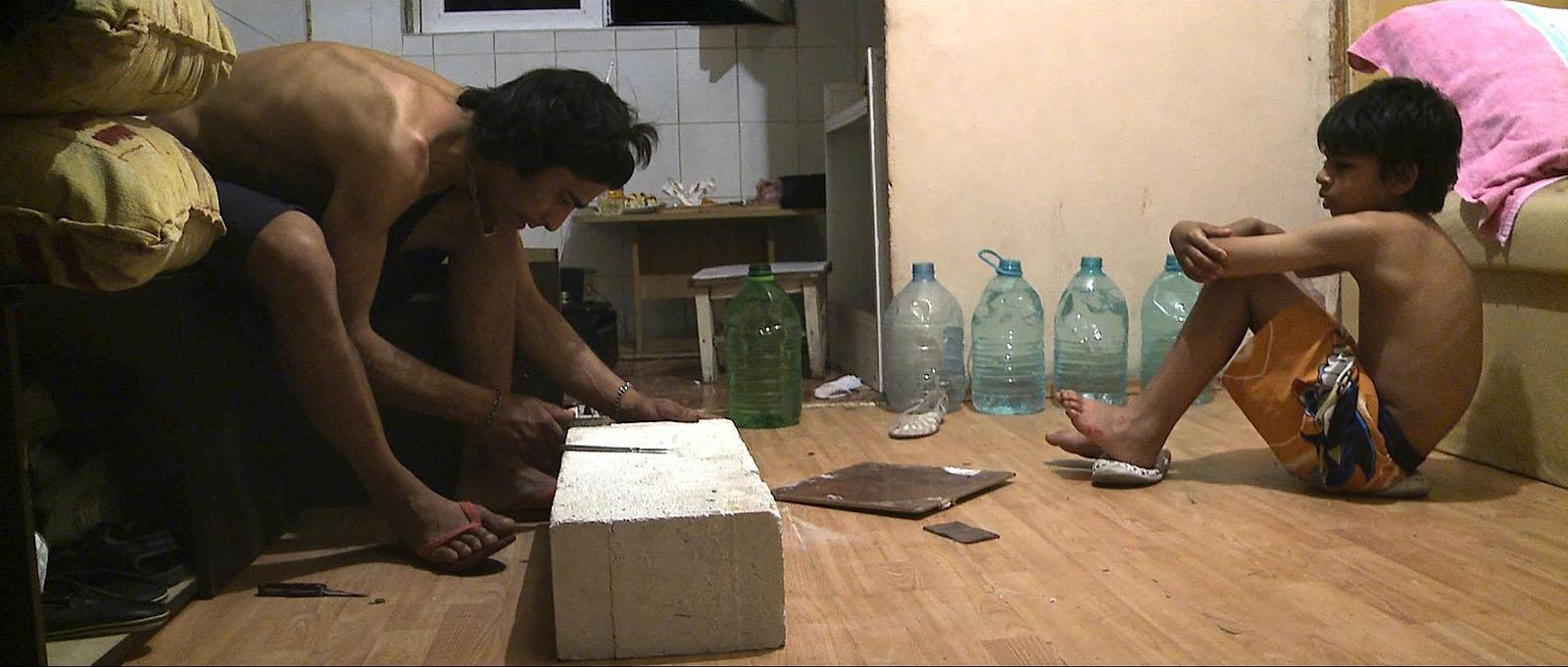
Toto’s uncle makes a simple hotplate in the flat. There is no running water or a toilet.
Takes drugs
While Ana stirs the soup, the door opens and several young men enter the room.
“I’m not having junkies in the house anymore,” shouts Ana angrily, but no one listens. Everyone knows that their mum is in prison and that the children are living on their own. The men sit on the floor and on the sofa and start filling their needles with drugs. Uncle Sile does too.
“Relax. I can give you some,” says a teenage boy to Ana. She shakes her head.
“Leave me alone.”
Toto sits on the sofa and watches as the older boy sticks a needle in the crook of his arm and leans back. When his eyelids start flickering, Toto knows the drug has begun to work. Ana has taken drugs too before, but she’s trying to stop now.
Andrea has gone out, but now she comes back and gets upset at the sight of all the people.
“God help us make sure you all go to prison,” she says.
Andrea leaves the flat while Toto curls up on the sofa and falls asleep.
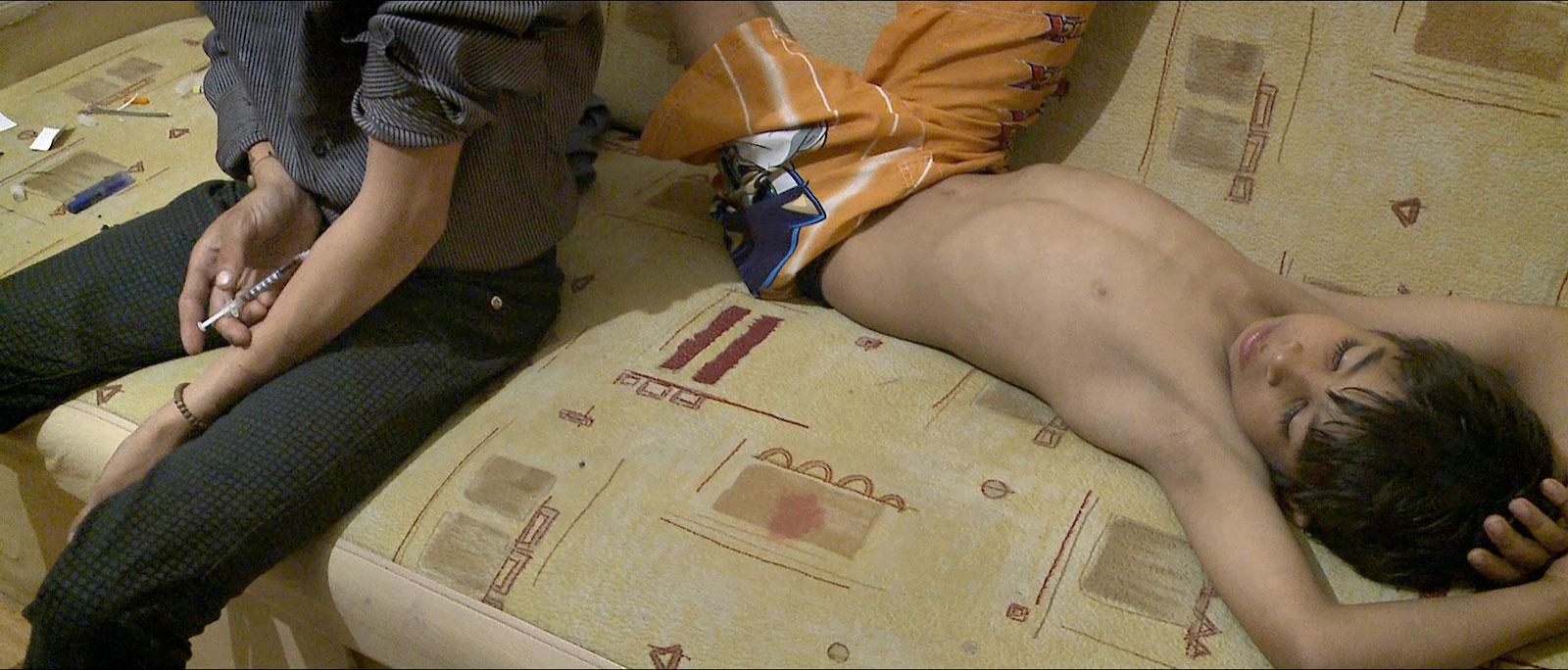
Many people used Toto’s flat to take drugs, because the children were living there without any adults.
Stays in prison
According to Romanian law, Toto’s mum can be released after serving two-thirds of her sentence, but in prison they don’t think she regrets what she did enough. She has to stay in for longer.
Most people sentenced to prison for selling drugs are themselves drug addicts, women and teenagers. They only earn a little money which goes to food for the day and the drugs they take themselves. The criminal gangs that make the drugs and earn millions never seem to get caught. Instead they build beautiful houses and buy expensive cars. Some of the money is spent on bribing the police and politicians, so they can go about their business without being disturbed. Lots of people in Ferentari have a good idea who’s running the drug trade, but they wouldn’t dream of snitching to the police. It would put their lives and the lives of their children in danger.
Meets Valeriu
One day Toto’s cousin says:
“Come and play football.”
Toto has heard that a man is organizing football training in the sports hall next to school, but he’s never plucked up the courage to go.
Valeriu is a man in a woolly hat and tracksuit. He takes one look at Toto’s plastic slippers and quickly digs out a pair of football boots for him from a huge pile of shoes on the floor.
Toto starts going to football practice every week. He gets a top and tracksuit bottoms to play in too. After a while, Valeriu asks if he’d like to come to homework help too, at what is known as the Alternative Education Club.
Toto doesn’t want to at first. He’s never been to school and he’s ashamed that he can neither read nor write. He can only count to nine, although he’s ten years old. But in the end he goes and Andrea joins him.
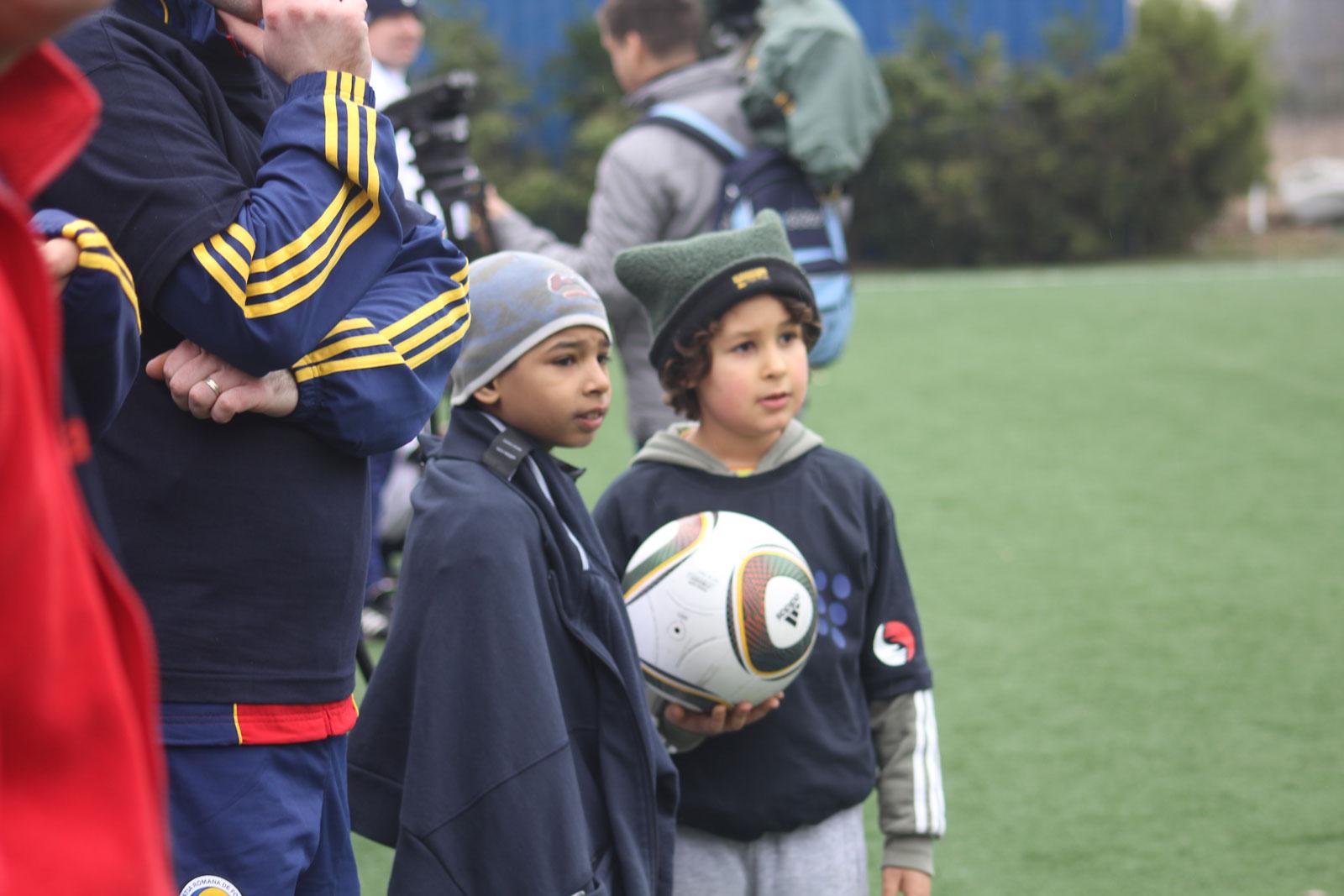
When Toto starts going to football training, he only has a pair of plastic slippers to play in, but Valeriu gives him real football boots and a tracksuit.
Different kind of school
Valeriu and his friends borrow a classroom at the school in Ferentari in the afternoons and on weekends. A colourful sign on the door that says ‘Alternative Education Club’. They’ve made it look nice inside, with pictures on the walls and paper chains hanging from the ceiling. Every week, Valeriu’s friends from the city come to help the children learn to read, write and count. Some are teachers, but most of them have other jobs. Some are lawyers, bus drivers, IT technicians or nurses. Before they came to the club, most of them didn’t know anything about Ferentari or the poverty here. Some are so shocked they never come back. But most of them return, week after week.
“It feels like we’re a family,” says Toto after a while to Valeriu.
At the Club, the children also get to draw, play music and do drama. A dancer from a famous street dance crew teaches them hip-hop styles like locking and popping. It’s hard to keep up at first, but Toto works really hard, both at home and during the dance sessions. While the others lose the tempo, Toto listens to the beats and in the end can copy the teacher’s movements perfectly.
Starts school
Toto starts school as well, but he is often late to class. Ana is back on drugs, so Andrea doesn’t want to stay at home. She sleeps over at friends’ houses and Toto often lies awake at night because he feels lonely and afraid.
“Sorry for being late, miss,” he says when he arrives at the classroom one morning.
The teacher is used to it and asks how he is doing.
“I couldn’t get up… I was dead tired, miss … I didn’t sleep at all.”
Before Valeriu and the Education Club started working at the school, most teachers knew nothing about the children’s lives in Ferentari. When they turned up late or fell asleep during lessons, they were told off and punished. Many children left school because they were so unhappy. But now Valeriu explains the situation to the teachers and they understand that the children try to do their best. Toto’s teacher pats him on the arm and gives him a piece of paper with clocks, asking him to write the time they show under each one.
“You work it out,” she says kindly. “Don’t rush this time.”
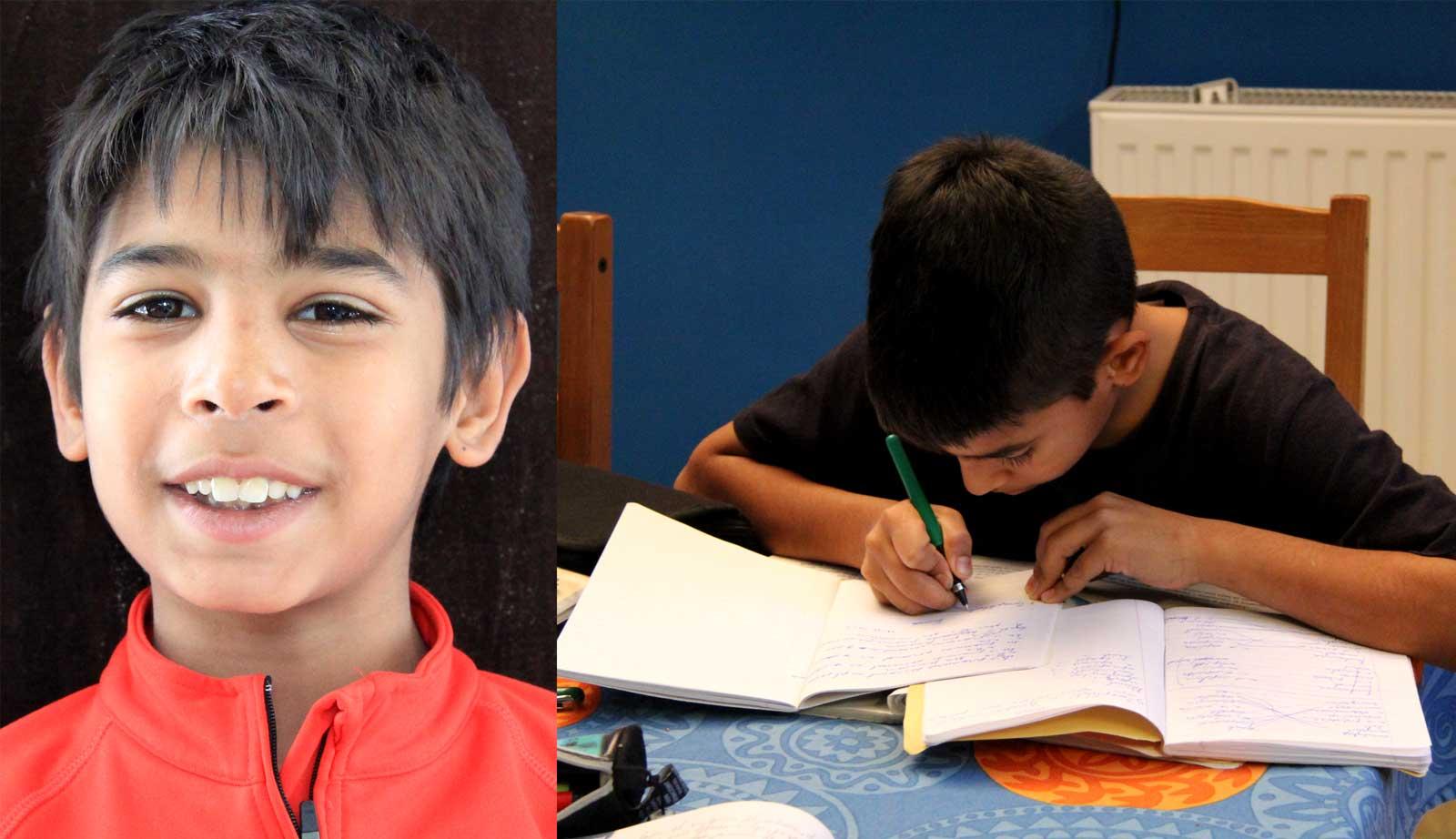
Toto at the age of 10.
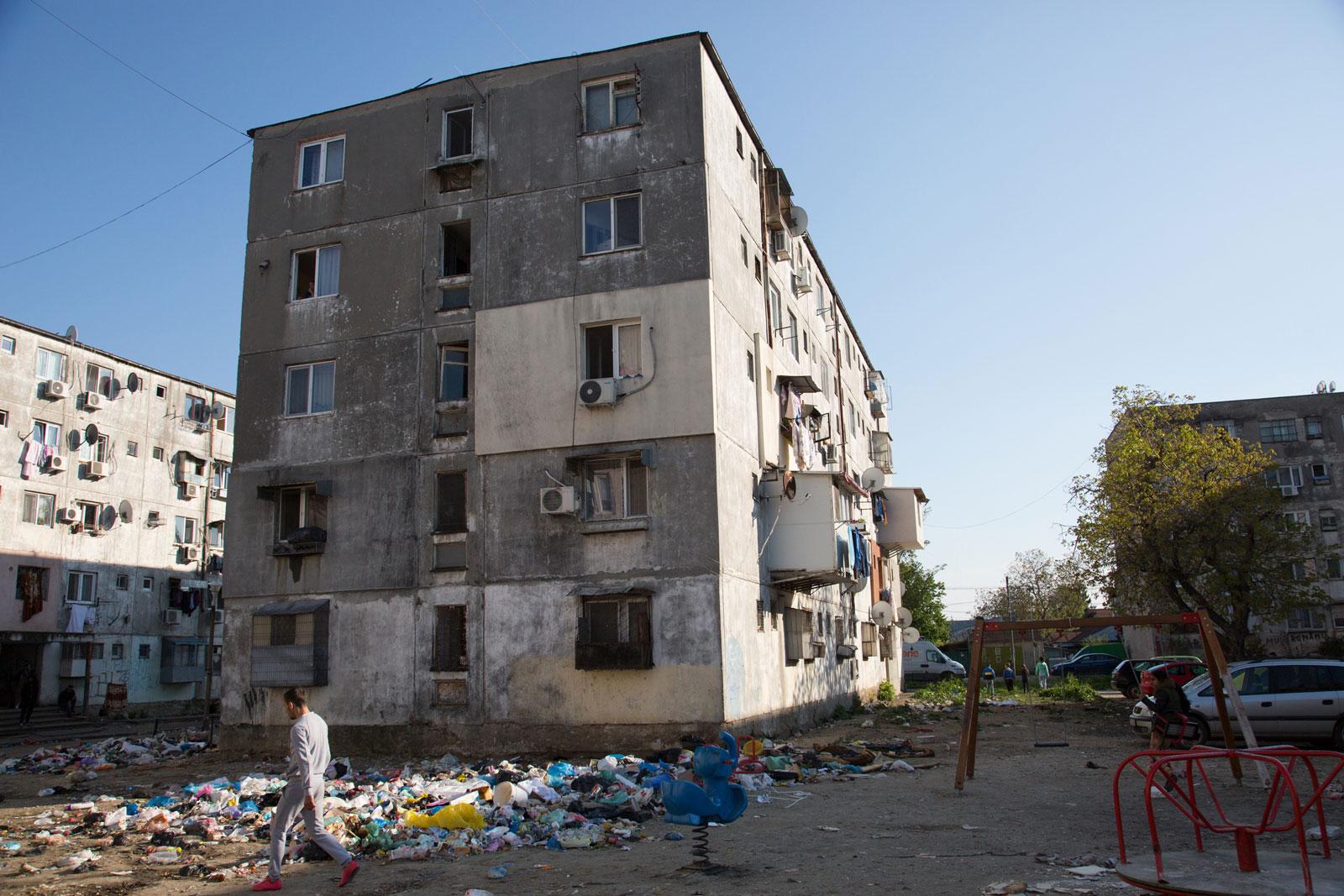
The council has stopped collecting rubbish in Ferentari, and the families have nowhere to get rid of their rubbish. Some of the adults tried to clean up at first, but now everyone has given up. The rubbish attracts rats, which spread disease.
Police take Ana
Toto is at school when the police turn up at his home and bang on the door. They shout:
“Police! Open up!”
Then they break down the door and rush in.
“Everybody get down! Down!”
Ana and the others throw themselves down on the floor. The police put handcuffs on them, shove them down the stairs and into a car outside.
When Andrea comes home, a man is sitting inside on his own.
“Your sister got arrested,” he says.
Andrea and Toto are now left on their own. Ana has to stay in prison for a while. The police try to get her to say she has sold drugs but she refuses. Late one evening, she is released and comes home.
“Will you start doing drugs again?” asks Andrea anxiously. Toto gives Ana a hug.
“Welcome back, Ana,” he says, and suddenly starts cryng. “How did you get out?”
“Stop crying… I won’t do drugs anymore,” says Ana. She promises that no one will take drugs in the flat again, and that she will take care of Toto. She looks tired and her clothes are hanging off her skinny body.
“Why have you lost so much weight?” asks Andrea. “I eat what I can,” is Ana’s curt response.
Dreams of a job
Ana wants to work as a chef and gets help from the Education Club to apply for a place on a professional course. She gets an interview and the woman from the school asks how old she is.
“17.”
“You’re underage, we need one of your parents to be present.” “My mum’s in jail.”
“I see. And your father?”
“He doesn’t care about me,” says Ana, who hasn’t had any contact with her dad.
“To take this course you need a parent’s consent, OK,” says the woman apologetically.
Ana goes home, sad and disappointed. Soon she starts taking drugs again.
Moving to a children’s home
Valeriu thinks it’s too dangerous for Toto and Andrea to live at home any longer, and that they should move to the children’s home in Ferentari. Andrea doesn’t want to. She remembers the last time she and Ana lived in a children’s home, before Toto was born. She felt awful that mum didn’t want them anymore. It was Uncle Sile who got mum to take them back home. When Andrea talks to her teacher at the Education Club about it, she starts crying. Crying won’t solve anything, says the teacher.
“Be strong. Be stubborn. That’s how our lives work. Do you understand?”
“I do,” says Andrea, and gets a big hug from the teacher.
Andrea and Toto move to the children’s home. It is run down and there are lots of rules, but they get food every day and no one takes drugs or shouts at them. After a while, Toto starts to feel at home. Ana comes and visits sometimes. She borrows the shower and changes her clothes. Every time she looks thinner and more tired.
Ana is sick
When Ana suddenly stops visiting the children’s home, Andrea goes to the flat, which is dirty and untidy. Ana doesn’t have the energy to do anything. She just lies in bed. She cries and says her siblings have abandoned her.
“We left because we couldn’t live like this anymore…” explains Andrea. She reminds Ana that when she came out of prison she promised to start school and work.
“None of that happened. Don’t you want to go the hospital at least?”
Ana finally goes to the children’s home with Andrea. She talks to an adviser there, and Andrea listens to them behind the door. The adviser asks Ana when she started taking drugs.
“I was 13,” she replies.
After they talk some more, the adviser rustles her papers and says:
“Your test results came back. And unfortunately you are HIV positive.”
Andrea is sad, but not surprised. Toto is too young to understand, but she has suspected for a long time that Ana was sick. HIV spreads easily when drug abusers share needles. HIV is not fatal. There is effective treatment available and it helps to lead a healthy life. But life is so hard in Ferentari that HIV often quickly develops into the deadly illness AIDS.
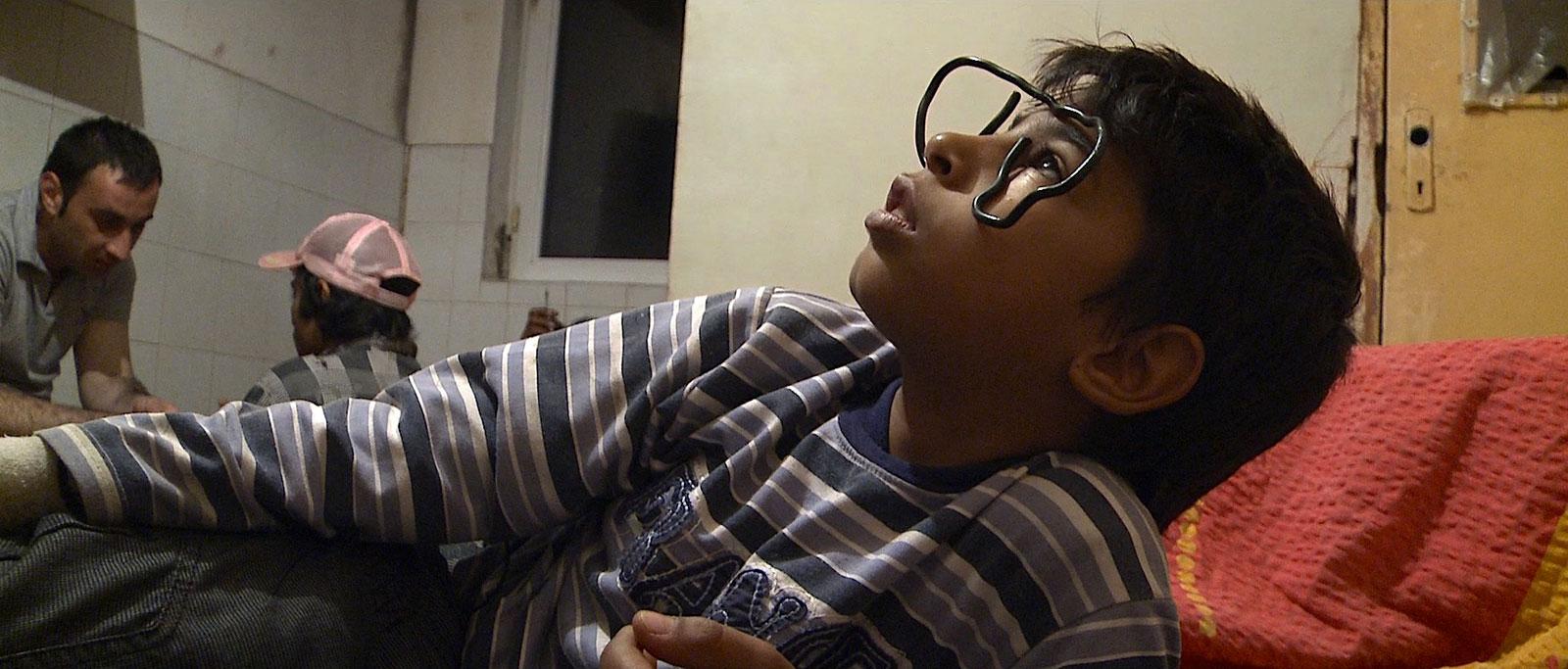
Toto competes
The dance teacher at the club has entered Toto into a big hip-hop dance competition. The judges come from Italy, Denmark and the US. Toto is nervous and fiddles with the number attached to one of his trouser legs, 227. Suddenly they call him from the stage:
“Time for the last dancer in the popping final, number 227!”
The spotlights shine right into Toto’s eyes. He can’t see the audience, but he knows that Valeriu, the dance teacher and his friends are there. The music starts, and Toto moves with short, rolling movements. He tightens and relaxes his muscles, so it looks like his body is shaking from electric shocks. And he wins a prize – second place! His friends cheer while Toto stands on the podium and gets a medal round his neck.
“Well done, kid! You’re a born champion, hear me?” says the dance teacher afterwards. “You’re the best. Don’t you forget it…”
Keen to help others
Toto is now 17. He and Andrea stayed on at school. Ana is still struggling with her illness. Mum is out of prison, but they rarely meet. Toto lives in a group home in Ferentari with six other boys who can’t live with their families either.
“It’s OK here,” he says. “But I miss my family sometimes and then I get sad.”
There’s a poster on the wall for the film Toto and His Sisters. It’s about Toto’s life in Ferentari and was made by a famous film director with the help of Valeriu and others from the Alternative Education Club.
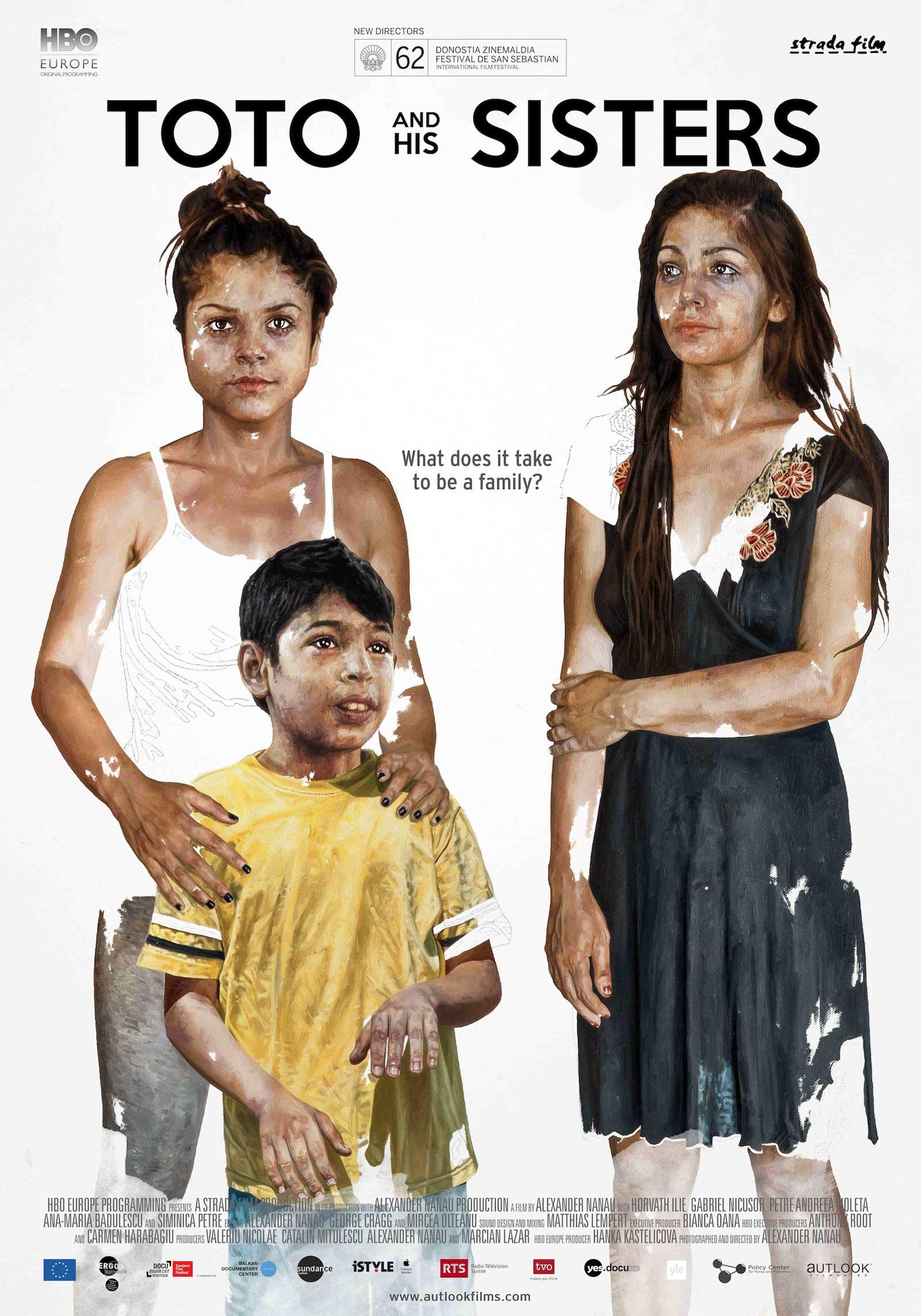
The poster for the movie about Toto's life, Toto and His Sisters, hangs on the wall at home.
“At first it was weird having someone sitting in a corner filming everything we did, but after a while I didn’t think about it anymore.”
Toto and His Sisters has been shown at film festivals all over the world and has won many awards and rave reviews.
“It feels strange to sit in a dark cinema and hear people crying when they see bits of my life. It made me understand more about what I’ve been through. Afterwards, people often ask questions and ask for my autograph. Then I usually ask them to write their names too and a message on my shirt, as a memento. I’ve got three shirts like that at home now, covered in messages!”
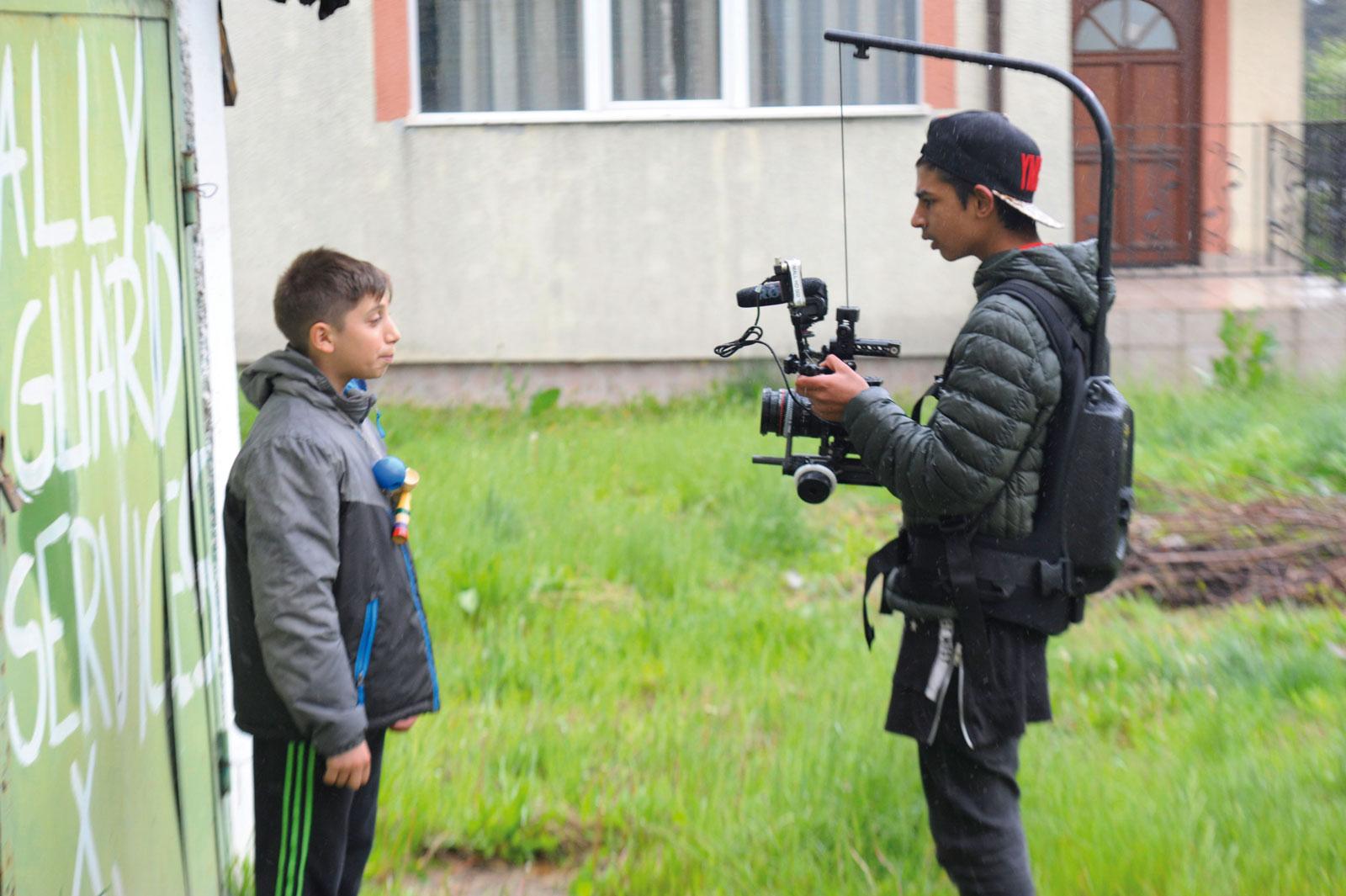
Toto is making his own film about life in Ferentari.
Own film
Toto is now making his own film about Ferentari.
“People think that all the people who live in Ferentari are thieves, that we’re too lazy to work, that we only want to take drugs and like living surrounded by dirt and rubbish. But it’s not true. Of course drug users want to stop, but it’s really hard. People do want things to be clean and tidy, but there’s nowhere to get rid of the rubbish. In the end they just give up.”
Toto says that most people want to work, but that no one wants to employ people who live in Ferentari.
“It’s happened to my friends, even to those that left school with top grades. It’s especially hard if you’re dark, because there’s a lot of racism aimed at us Roma.”
Toto thinks people should visit Ferentari and see how it is with their own eyes.
“Talk to us instead of listening to lies and prejudice. We’re people just like you.”
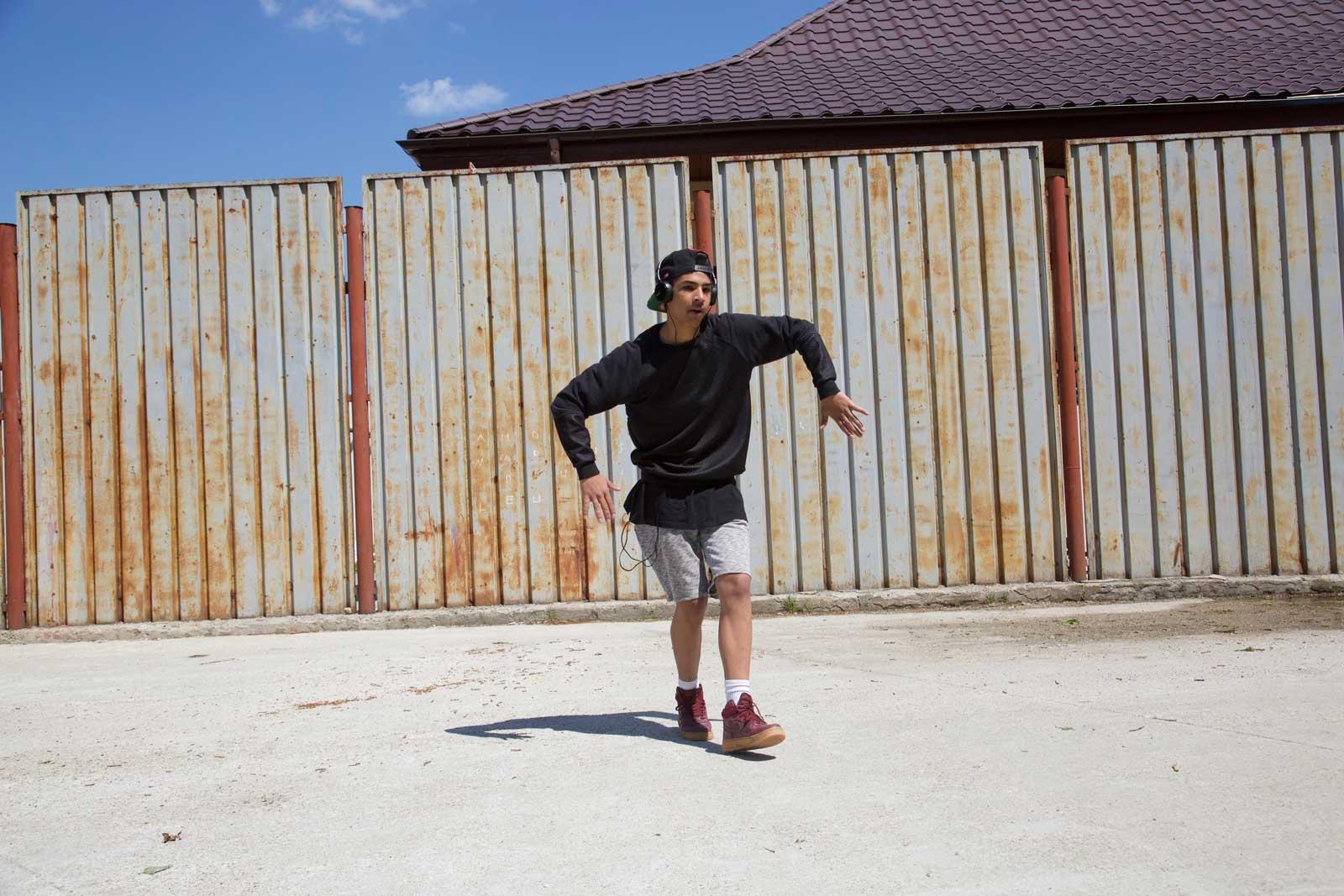
Toto still dances, but mostly for fun. Today he’s more interested in acting, drama and making films.
“Talk to us instead of listening to lies and prejudice.
We’re people just like you.”
Toto, 17
Favourite things: Drama and making films.
Worst things: Racism. Injustice.
Misses: My family.
Trusts: My friends.
Sad: When I miss my family.
Dream job: Actor.
Looks up to: Valeriu. He’s like a dad to all of us.
Related stories
Långgatan 13, 647 30, Mariefred, Sweden
Phone: +46-159-129 00 • info@worldschildrensprize.org
© 2020 World’s Children’s Prize Foundation. All rights reserved. WORLD'S CHILDREN'S PRIZE®, the Foundation's logo, WORLD'S CHILDREN'S PRIZE FOR THE RIGHTS OF THE CHILD®, WORLD'S CHILDREN'S PARLIAMENT®, WORLD'S CHILDREN'S OMBUDSMAN®, WORLD'S CHILDREN'S PRESS CONFERENCE® and YOU ME EQUAL RIGHTS are service marks of the Foundation.



